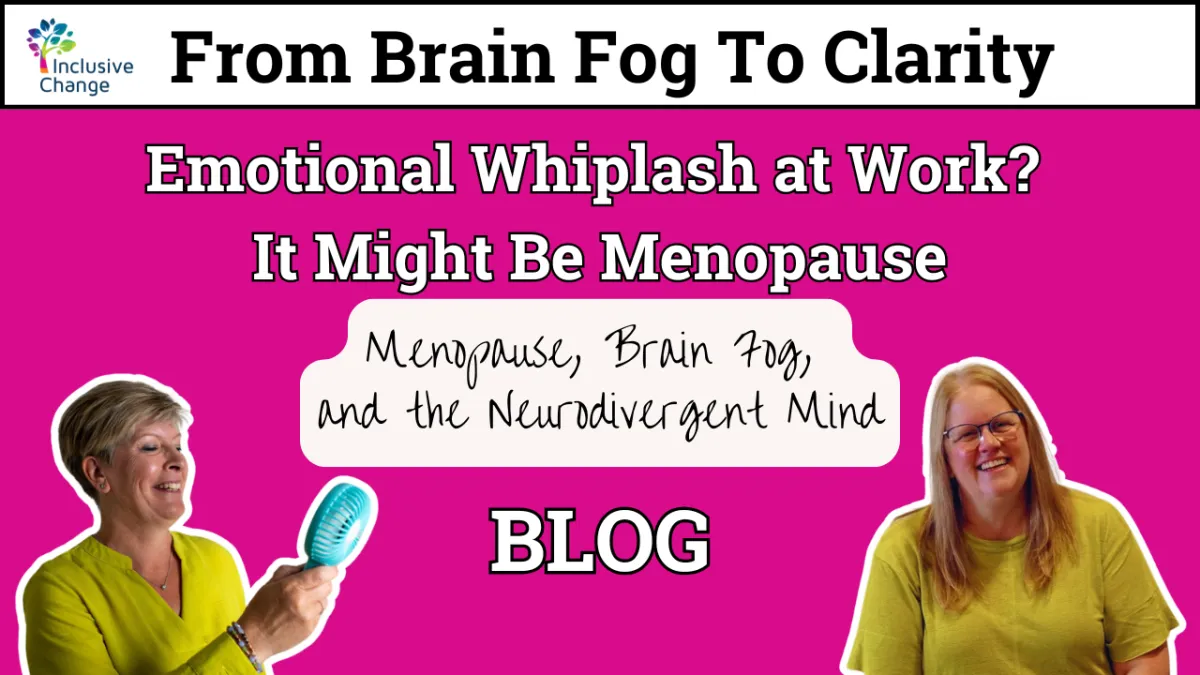
Emotional Whiplash at Work? It Might Be Menopause
Let’s get honest about something many of us are afraid to admit: it’s getting harder to regulate emotions at work.
Tears in the loo. Snapping at a colleague. Feeling numb in a meeting, then overwhelmed 10 minutes later. The emotional whiplash is real, and you’re not imagining it.
For women going through menopause, especially those who are neurodivergent, emotional regulation becomes an uphill climb.
What’s Actually Happening?
Your hormones are in flux. Estrogen and progesterone, which both help regulate mood and emotions, begin to dip. This affects everything from your impulse control to how long you stay emotionally flooded after a stressful moment.
If you have ADHD or are autistic, you may already have a more sensitive nervous system. Your baseline for emotional regulation may already be stretched thin. Now, menopause adds another layer.
Why Work Makes It Worse
Workplaces are full of unspoken rules - tone, pace, politeness, urgency. But they’re not built for fluctuating hormones or sensory systems on high alert.
Maybe you:
•Freeze when put on the spot in a meeting
•Tear up over feedback you’d normally handle
•Lose hours to emotional recovery after one awkward moment
•Feel chronically irritable but don’t know how to explain it
This isn’t immaturity. It’s not being 'too emotional'. It’s your body and brain trying to regulate while navigating a world that doesn’t recognise what’s happening inside you.
What Can You Do?
You don’t need to hide. But you do need to understand your emotional patterns and start creating safer internal and external spaces.
1. Name what’s happening
The simple act of acknowledging 'this is hormone-related' can soften shame.
2. Create recovery time
If you’re emotionally flooded, don’t expect to carry on as normal. Take 5 minutes. Walk. Breathe. Step outside.
3. Communicate needs proactively
If you’re in a place to share, let colleagues know you may need a pause after tough conversations. Keep it simple and honest.
4. Use sensory strategies
Noise, temperature, textures - sensory discomfort often adds fuel to emotional dysregulation. Make small changes where you can.
5. Seek coaching or peer support
You’re not meant to navigate this alone. Working with someone who understands the overlap between neurodivergence and menopause can help you create real strategies that work.
You’re Not Overreacting. You’re Overloaded.
You don’t have to be a master of Zen or pretend everything’s fine. You just need to honour what’s real, reduce shame, and build a way of working that actually works for you.
That’s why we created the From Brain Fog to Clarity workshop, and why our coaching programme supports you beyond just 'getting through it'.
Join us here: